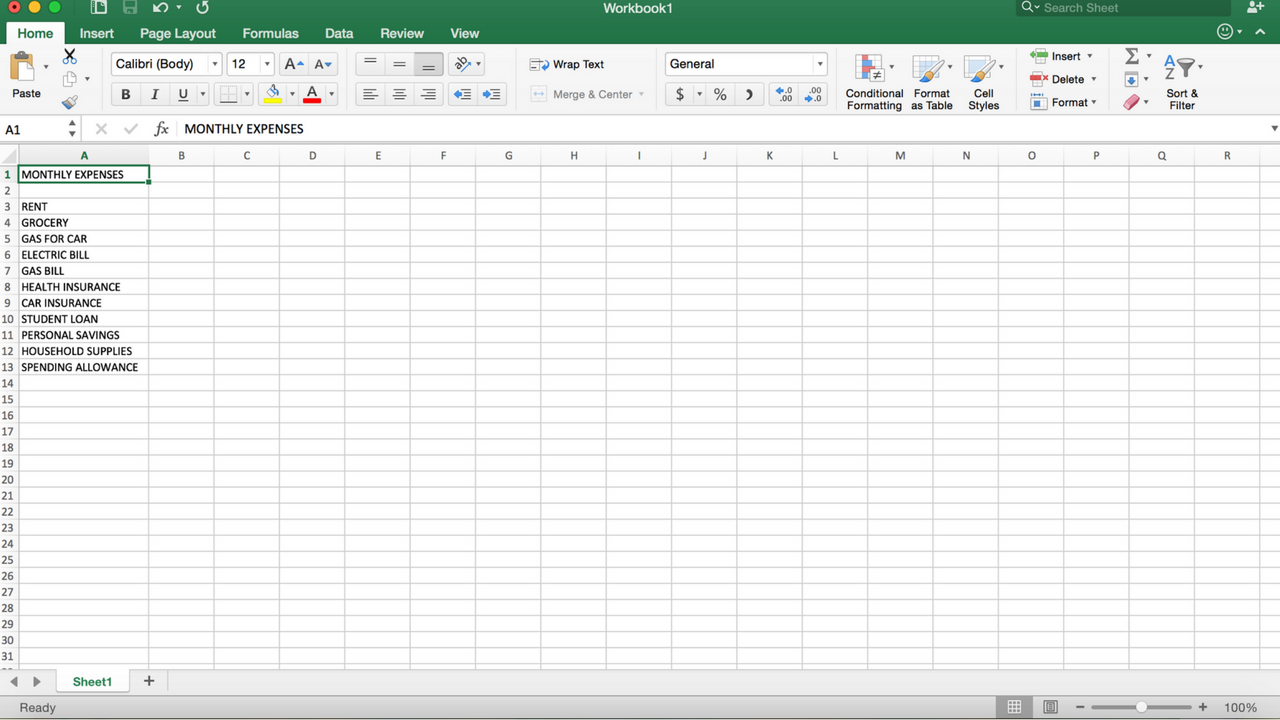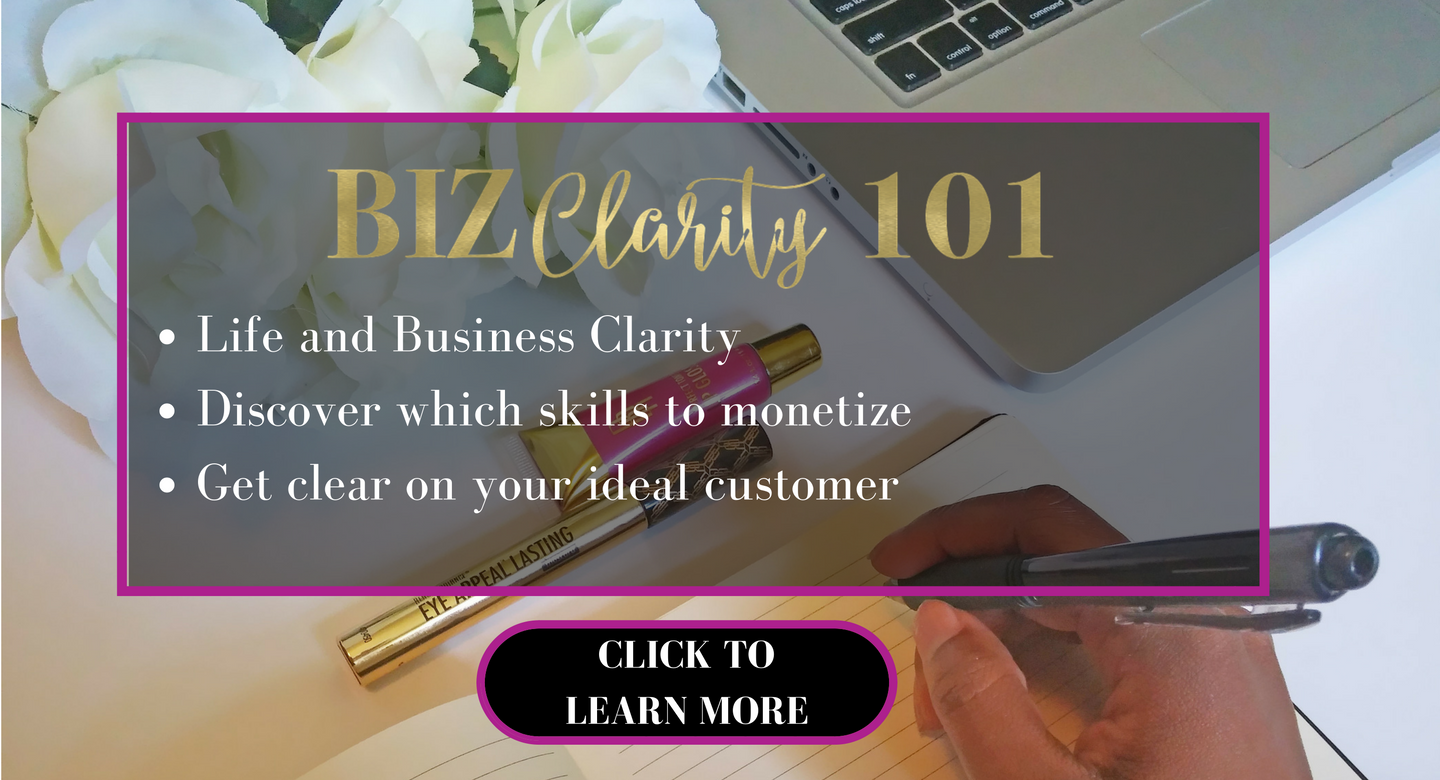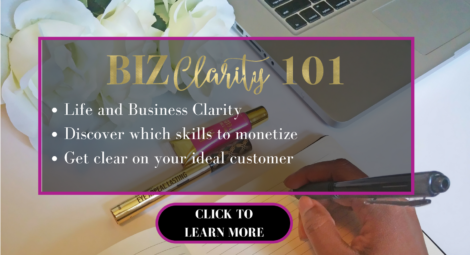
by Nozipho Sibanda | Feb 1, 2017 | Business, Lifestyle |
Hey beautiful, I’ve always loved going out to the store just so I could buy the cutest planner and start writing down life goals for the year. I would always get back home and immediately start writing all the things I wanted to accomplish, and the date I wanted to accomplish them. Doing this would get me super excited and give me high hopes that I would actually accomplish EVERYTHING on that list. Well, some years I accomplished all of them and other years I didn’t accomplish any. And after looking back at what it took to accomplish my goals I started to notice a very simple pattern that I did every single time; I set up SMART goals.
SMART is an acronym that is often credited to Peter Drucker in his management by objectives concept. SMART is a way to get clarity on your goal and have an actionable starting point on how you’ll achieve it. There are so many variations of the acronym out there, and today I want to share with you the version I use that helps to connect deeper to your goals so that you can stay motivated in achieving them.
SPECIFIC
Your goal needs to be as specific as possible. This is important because you want to be very clear on what you want to achieve. The beginning of any goal coming to life is knowing exactly what it is and what it looks like. Doing this will help you know when you’ve achieved it. The question you’ll want to ask yourself is:
“What do I want to accomplish?”
Example: I want to publish an E-book on the benefits of clean eating.
MEANINGFUL
Next you’ll want to determine if your goal is meaningful enough. Does achieving this goal have a significant importance or purpose in your life? This is the beginning of building the connection between you and your goal; and having this connection will keep you motivated even when things get difficult. The questions you’ll want to ask yourself are:
“Why do I want to achieve this goal?” and “how will achieving it effect my life?”
Example: I want to publish an E-book on the benefits of clean eating because eating this way has helped me stay healthy and have more energy. This is something I believe everyone should know about because it has helped change my life. Publishing this book will effect my life because it will build a gateway for me to get my message out there and build a business on my desire to save lives through clean eating.
ACHIEVABLE
After you’ve connected with your goal, you’ll want to measure whether it’s achievable. Do you have the skills and can you find resources that will help you accomplish this goal? You want to stretch yourself beyond your comfort zone, but still maintain the belief that achieving this goal is possible for you. When you feel like it’ll be hard or almost impossible to achieve something, it will be easier to become defeated and lose motivation in achieving it. Ask yourself this:
“Do I believe that I can have everything I need to accomplish this goal?”
Example: Yes! I believe that I have everything I need to publish my E-book on the benefits of clean eating. I have the internet, books, and other resources that will give me the information and instruction I need to write, edit, publish, and promote this E-book. I also have 2-4 hours per day to write my book and effectively market it. And thank goodness for technology because now I can self-publish and sell it online on places like createspace.
REWARDING
Plain and simple, will this goal add joy and fulfillment to your life? Is it something you actually want to do? Will you feel good about putting in the work to accomplish it? You want your goal to be a rewarding experience, both during the process and after. Nothing screams “bored and unmotivated” than to be working on a goal that you don’t enjoy and are simply not passionate about. And of course, you’ve got to ask yourself:
“Is this goal in line with my overall purpose?” and “Is it worth achieving, even if the process becomes difficult?”
Example: Publishing an E-book on the benefits of clean eating is the starting point in building my business as a heathy eating educator. It’s in line with my purpose and it’s something that gives me joy and fulfillment because I’m passionate about sharing all the information I know that will help change people’s lives towards health.
TIME-BASED
Having a time-based goal is easier to accomplish than having an open-ended goal with no target date. It’s easier to procrastinate when you’re just going with the flow and putting in the work whenever you feel like it. One of the benefits of setting a target date is that you can set mini target dates for working on certain tasks that will get you closer to your goal. This will keep you organized and actively engaged, while experiencing less overwhelm. Ask yourself:
“What’s the date I want to accomplish my goal?” “What can I do in the next week, month, 3 months, 6 months leading up to my target date?”
Example: This week I will do research on strategies on developing an E-book. The next 3 months will be dedicated to writing the content of my book. In 6 months I want to already have the editing done and start marketing the book before it launches. In 8 months I want to start book pre-orders.
This SMART way of writing down your goals is a great way to be organized, motivated, and clear about what you’re working to achieve. It can also help to check in with yourself frequently on whether you’re still aligned to your goal. I usually read over my SMART goal once a week while I’m planning for the week ahead. Let me know in the comments below, what’s the SMART goal you’re currently working on?
Always and Forever
~Nozipho

by Nozipho Sibanda | Nov 2, 2016 | Business, Lifestyle |
Hey beautiful, If you’re reading this right now you’re probably thinking about quitting your job and maybe part of you feels nervous, uncertain, excited, and even scared (in that order). Am I right?
I can totally relate to pondering on this decision and experiencing all the feelings associated with it. It isn’t always the most comfortable AT ALL. In 2013 I made the decision to quit my job. I didn’t have all this knowledge that I’ll be sharing with you right here, so I ended up doing some things right, and other things were hard learned on the way.
But it’s totally possible to make this transition from your full-time job a very smooth one, if you strategically plan for it. Here how…
1. DETERMINE WHETHER GOD IS LEADING YOU TO QUIT AND HOW MUCH YOU DESIRE TO QUIT
First things first, you want to talk to God about it and be clear on whether He wants you to quit now, in the near future, or not yet. As a virtuous woman who believes in Jesus Christ, you’ll want to seek Him for direction because you trust His leading in your life. It can feel like you’re going in circles and not getting anywhere when you try and overstep God and do things your own way at your own time.
Another thing you’ll want to consider is whether or not you actually want to quit your job? Do you feel called to do something different or are you just sick and tired of your co-workers shenanigans? Quitting your job (if not thought about properly) can bring on some challenges emotionally and financially so you want to make sure that it’s something you really want and not just an escape because you’ve been having a few bad days. Sometimes after thinking about this you’ll realize that you enjoy your job and can figure out ways to make the experience better. You may even become more confident that this job is exactly what you need right now. Either way, stay true to what you really want.
Simplified Action: Pray about it frequently, journal, and create moments of quietness and stillness each day and be open to what God has to say. You’ll have to be more intentional about this if your schedule is packed from am-pm. THIS IS NOT A ONE TIME EVENT. Figure out what He’s impressing on your heart,listen closely.
2. START BRAINSTORMING WHAT YOU WANT TO DO AFTER YOU QUIT
If it’s God’s will for you to transition out of your job at this time, or soon, then you’ll need to have a plan on what next! You DON’T want to start thinking about this after you turn in your 2 week notice, rather make a plan leading to your quit date. It can be overwhelming to come up with income ideas once you’ve quit. So thinking about this ahead of time can save you from that icky stressed out feeling you get when you’re caught in between a rock and a hard place.
Simplified Action: Start by brainstorming a list of all the possible options you’d like to do once you quit your job. Don’t overthink or analyze YET, just write down every possible option that comes to mind (you’ll narrow this list after you figure out where you stand financially).
3. FIGURE OUT WHERE YOU STAND FINANCIALLY
Your finances will be a large determining factor of what you can do after you quit your job. You may realize that you’ll need to get another job before quitting, transition to part time, or you’ll be okay if you don’t have to work for awhile. There are so many options available to you, but knowing how much income you bring in and how much goes out will help a ton in deciding which option you want to take.
It’s also possible that God may impress on your heart to quit and it may not make sense for you financially. I actually found myself experiencing this. I did have money saved up to last me at least another 6 months to a year, but I had no idea when my next job or income would come. And that was the root of my fear and uncertainty with quitting. I’ve always been that girl that values structure and financial security, needing to know how everything is going to work out ahead of time. So this was a huuuge challenge for me and I had nothing else but to trust God and walk in faith. I’ll definitely say that I’ll always remember this step as the beginning of when I truly let go and trusted God with everything.
Simplified Action: Schedule a RELAXING time to evaluate where you stand financially. I’m putting focus on “relaxing” because if you get into this exercise already stressed or with something else on your mind, you’ll get overwhelmed, even if there’s no reason to. You need to know your exact income and monthly take home pay, bills, and debt (in exact dollars). An easy way to keep things organized and your figures more accurate is to use a spreadsheet like microsoft excel. I like this tool because it automatically adds and subtracts amounts as I type in new figures (eliminates all that erasing and calculator math used on paper).
4. GET OUT OF DEBT OR HAVE A QUICKER DEBT REPAYMENT STRATEGY
I know that in our society debt is sometimes seen as normal, everybody has is. From student loans, mortgage, credit cards, car payments, etc the list can go on and on with all the different ways we “normally” collect debt and simply live with it. But I’ll tell you, debt is the last thing you want hanging over you when you’re desiring to quit your job. The more debt you have, the more income you need to pay it off. Paying off debt is not required in order for you to quit your job; it’s just better if you can. In the long run this will help you create more opportunities, invest in yourself and a future business, and do more good with the income God has provided you.
Just think for a second how life would be if you paid off all the things you owe? What kind of stuff will you be able to do? Would it make quitting your job an easier decision?
Simplified Action: Have a plan of how you can pay it off quicker as time goes on. You may choose to have a side gig that’s solely focused on helping you reduce debt, or a tighter budget that focuses on debt reduction.
5. CREATE A BUDGET BASED ON NECESSITIES
We’ve just talked about reducing debt and what better way to do that than to develop a budget. Now, this budget isn’t only looking at debt repayment, it’s main focus is to figure out how much money you need for your basic necessities (needs not wants). In theory, after you see where you stand financially it can seem like you need way more money than you actually do. Having a budget will help fix that so you can truly know what amount of income will be enough for you to take the leap. A lot of times our income is spent on so much randomness that adds up at the end of the month. From eating out, starbucks drive through’s, shopping on amazon, and getting those shoes just because you have a $10 off coupon…it all adds up!
Simplified Action: Create a budget (based on ONLY NECESSITIES) and stick to it for at least 2-3 months to see how much income you truly need to survive. This is one of the greatest tools to transitioning smoothly from your day job.

(Example of possible necessities)
6. HAVE A PERSONAL SAVINGS ACCOUNT
Yup! Start saving because murphy’s law likes to sneak up when you least expect it. What’s murphy’s law? Well, it basically states that “what can go wrong, will go wrong”. Knowing that you have some extra money on the side can ease some of the stress that comes with quitting your job. You don’t have to intend on using the money at all, but it’s nice to have it there for any expenses that come up. Save save save honey! As much as you can!
Simplified Action: Open an account that’s only focused on savings. If you have a card associated with the account, leave it at home and not in your purse so you ease the temptation of using it. Once you deposit that money, think of it as non-existent until an emergency comes up and you have NO OTHER CHOICE but to use it. Make sure you check the policies at your bank regarding taking money out of your savings. You should be able to take these funds out or transfer them whenever you like.
7. GET CLARITY ON YOUR BUSINESS IDEA
You may want to quit your job so you can focus on starting a business. To do this, you’ll need to have a clear business idea (the brainstorm you did earlier can give you some clues). Having a clear business idea will keep you focused and help you not waste time. It’s easier to get clarity on your business idea when you’re not in panic mode and when you have more time to actively figure it out without pressure. The best time to do this is when you’re still working, way before you quit. If you feel like you’re burnt out and overwhelmed already, still set aside a couple of hours a week to figure out your business idea. Even though you may think its just another thing added to your load, it may not actually turn out that way. Something about researching and being active in figuring out a business idea can bring about hope and give you peace knowing you have another option (that you’re actually passionate about).
Simplified Action: Think of creative ways to get clear on what you want. One thing that worked well for me was putting together a
lifestyle board that allowed me to have a tangible reminder of what I wanted to accomplish. It was a lot of fun creating it and it gave me hope and something to look forward to. Also, get on
pinterest and start pinning all the things you’d like to do when you quit your job and see what opportunities are out there so you can make it happen.

8. START BUILDING YOUR BUSINESS WAY BEFORE YOUR QUIT DATE
Unless you have a way to fund your business outside of your day job, then you may consider waiting it out until you get some upward movement in your biz. Your business will need money to keep running. Even though its possible for you to minimize your costs and keep them low, you’ll still need to fund those “low” costs. And the truth is, as your business grows, your costs increase as well. If you’re overwhelmed and working full time, you can also opt to switching to part time, or looking for another “low stress” part time job as you build your business. A lot of my client’s have done this and it has worked out well for them.
I quit my job cold turkey without knowing when I would get my next job and that was very nerve-wracking. Not having a side job when I started my business came with some internal struggles that could have been less. Also, starting a business while you work on the side can help you remain authentic and not start changing your business structure frequently just so you can make more money and live. If you’re financially able to support your business and your life without working a job, then that’s great too and it can allow you to work full time in your biz. Either way, make sure you have income and you’re not relying on your biz to pay your rent from the beginning.
Simplified Action: Spending even 2 hours a day working on your business can give you the momentum you need for it to grow until you have more time to spend on it.
9. SET A QUIT DATE
When you’ve got enough money coming in (outside your job) to support yourself and your business it’s time to set the date and put in your notice. Be aware of your company’s resignation policy and do your best to comply with it. More than likely you’ll already have a desired date in mind once you make the decision that quitting your day job is in your future. But it’s now time to make it official and work towards it smoothly and successfully. 🙂
Remember, God has you right here right now for a reason and for a season. So regardless of where He’s leading you in life, always make the most of your present situation. Don’t regret the present and live only for the future. There is so much you can learn from the job you’re working now; skills that can be beneficial in the next chapter God has for you. Don’t let those lessons slip away, because I can almost guarantee, they’ll probably come back at some point if you don’t learn them now. I pray that this transition is an amazing one for you and that God will bless you abundantly with the work He’s calling you to do. And I pray you do it well and with confidence.
Always and Forever,
~Nozipho
PS: How do you feel about transitioning slowly from your day job? If you’ve been able to quit, what helped you do it? Let me know in a comment below! Don’t forget to share this with your friends if you found it helpful!
“YOU WILL SEEK ME AND FIND ME WHEN YOU SEEK ME WITH ALL YOUR HEART.” JEREMIAH 29:13

by Nozipho Sibanda | Aug 24, 2016 | Business |
If you’re reading this post you’re probably thinking about starting a business, or you’ve already started it and you just want to make sure you’re on track and not doing anything that’ll slow down your progress. I totally get it! When I first started my business as an online coach, I would read/watch anything and everything that would help lessen my anxieties about taking this massive step that at the time, I felt kinda clueless about. I had mastered my expertise, which is coaching, but when it came to running a business that was another thing. I believed so many things about starting a business that I eventually found out are quite common and can easily keep you stuck. Here are five common myths that many aspiring entrepreneurs believe about starting a business and how you can escape from believing them, today.
1. You have to be experienced in business
Girl, absolutely not! Most entrepreneurs start their businesses with little knowledge if any at all. Business is a growth journey. Meaning that you learn as you go. What you know in your first year as a business owner is completely different to what you know in your 5th, 10th, and even 20th year in the biz. Your business evolves and you learn new skills and strategies that will allow your business to grow and be of greater influence. Each milestone is a blessing and specific to where you need to be at that time. Typically, your first year in business is all about trial and error, seeing what works and what doesn’t. You start off with an idea and you see what it takes for it to work. You’re learning business language and getting your systems in place. You’re getting your feet wet in marketing, and learning to get a deeper understanding of who you’re meant to serve. You’re getting help from other business owners in your industry who have been where you are and are doing what you want to do. And most importantly, you’re figuring out your voice and message. Setting the tone for your God given purpose in business. That’s the beauty of the first year (or 2nd), so embrace it, knowing that it’s only part of the process and it’s beautiful in its own way. Your current lack of knowledge will make learning the basics more meaningful.
2. You have to have a lot of money
In whose world lol? No, but really, it can definitely help to have loads of money. But that doesn’t mean you can’t do it if you don’t. You can. I did. And so did many others, in every industry. These days we’re blessed with so many options of putting ourselves out there and starting a biz with no capital. The online world has been a huge contributor in having systems and programs that allow us to sell and market our expertise. Being able to start small with a potential to grow and create influence. You can literally wake up tomorrow and decide to open a store…and its done! Platforms such as Etsy , Big Cartel, and Shopify allow you have an online store where you can sell products. The opportunities are endless.
Whether you want to start an online business or a brick and mortar (business at a physical location), the trick is to start small with what you have and grow as your business becomes more profitable. It’s easier and a lot less anxious to reinvest in your business with the money made through the business. You may think you have to have everything top notch like the pioneers in your industry, but you don’t. You’ll get there, but you don’t have to have everything now (especially if you’re not rolling in dough and throwing cash like confetti).
Just to be clear, starting a profitable business isn’t free! You’ll have to invest in your business in some way from the very beginning. Even if its investing in a $25 system like Leadpages to create a high conversion landing page, taking a course like Biz Clarity 101 to get familiar with starting a biz, or even purchasing Bluehost for website hosting. You’ll need to put down some kind of money in order to set your business up for growth. That’s why I encourage clients to have money coming in so they can fund their business. At some point, your biz will be able to support itself, you, and others.

3. You can’t do it by yourself, you need a team
This is a quarter yes, but mostly no, here’s why. Since most people start small, it also means their doing this alone (or with a biz partner etc). Its very common for someone to do nearly everything in their biz when they’re just starting out. It’s a part of the first phase of business. This is the time that you’ll probably work the most and be hands on in almost everything. But as your business evolves, you’ll start hiring team members to take care of certain aspects of your business that you probably don’t want to mess with. You may start by hiring an assistant or a virtual assistant if you’re doing the online thing. Then after awhile you may hire a social media manager or copywriter. This hiring process happens gradually as the businesses’ finances and potential customers grows.
Now the reason why I say it’s a quarter yes, is because even though you’re doing everything in your business, you’ll also need to learn exactly what to do. If you start off without any business knowledge, you’ll have to get it from somewhere, right? The common ways that new entrepreneurs get biz knowledge is by reading books, the school of google and youtube, attending business related workshops, online courses like my Biz Clarity 101 (Shameless plug), and even one on one coaching with a coach in a biz related niche (specific specialty). So yes, even though it’s a myth that you can’t do it alone, you’ll still want to reach out and get help from others who have mastered the business process.
4. You have to wait for the perfect time
Girl Bye! Perfect is never coming! So unless you want to keep waiting for her, you’ll want to try this instead. Doing it when God say’s so, even if it doesn’t feel like the right time. God knows our circumstances way better than we do. We only know what we’ve experienced in the past, and what’s going on at this very moment. God knows beyond that, which is why we can trust what He tells us because He has our best interest at heart.
The months before I started my business, I had my whole life planned out…kinda. I recently got married 3 months before, moved to a new city, and was planning to work for a new company as a therapist for a few years until it was the perfect time for me to start my business. That was my plan, but for whatever reason God kept putting it in me to start a business. And the more that thought came, the more I tried to make sure it wasn’t what I was supposed to do, at least not then. I questioned whether it was the right time. I was anxious because I didn’t feel ready. But after much prayer I knew without a doubt I had to do this now. And I’m so glad I did, thanks God!
One thing you’ll never get back is time. It’s moving forward whether you are or not. Pray about everything, worry about nothing, and trust Jesus Christ on what He’s doing through the expertise He’s given you.
5. A successful entrepreneur has no fear when they start
Not unless you’re the exception to the rule. Cause everyone else has fears girl! More than anything it’s about moving forward with boldness and authority even in the presence of fear. Boldness and authority simply means confidence. And for us virtuous women, our confidence lies in Christ. And because we’re confident in Him, we can walk boldly and with authority because He’s paving the ways for us.
Business isn’t a cooking cutter thing that has absolute guarantees. Its success is based on so many factors, which you as a new entrepreneur are trying to figure out. It’s normal to have thoughts about where the money will come from, how will I manage my own company, what if I make a mistake, why am I feeling nervous and slightly sick about putting myself out there, will I ever get paying customers, what if I’m bad at this, what will people think if I don’t succeed. Did you notice something there? All of these fears point to “I”. The more we focus on ourselves, the more we realize how many fears we have. But the more we focus on Jesus Christ and the people He wants us to serve, the more we get excited about changing lives and making a difference. So the next time you feel afraid about starting your business, start thinking about all the people you’ll influence instead.
You’ve made it to the end of this post so I’m pretty sure you’re wanting to start that business. Do it girl! If you’d like a guide that will help you lay the foundation for your new business, check out BIZ CLARITY 101. Also, let me know in the comments below, did you ever believe any of these myths? What do you think about them now?

Talk to you soon!
~Nozipho











